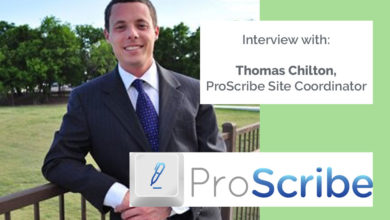Because “pre-med” isn’t an actual major at most schools, students in undergraduate studies who want to go to medical school often major in various science programs. Their required science courses often help them meet medical school admissions requirements.
But that doesn’t mean you have to follow the traditional pre-med path to successfully get into medical school.
Many students enter college still contemplating their undergraduate degree. Others send in their college applications from high school with a clear plan — they know they want to be pre-med majors and go to medical school. These students have the advantage of knowing some of the medical school prerequisite courses and exams they’ll need to get there.
Whatever your personal timeline is, you’ll need to meet admissions requirements for medical school, score well on the MCAT, and maintain a decent GPA throughout your undergrad years.
Let’s take a look at what this process might look like for undergraduate students interested in becoming physicians who don’t start out with a pre-med focus.
Can you go to med school with any major?
Yes, you can go to med school with any major. But if you decide you want to go to medical school after your sophomore of college, your premed courses and exams may mean you need to take a gap year or spend extra time in undergrad.
Can you get into medical school with just the MCAT? No, cannot get into medical school with just the MCAT. You also need a bachelor’s degree and passing grades in specific science courses to attend medical school.
ProspectiveDoctor has everything you need to get a medical education after your bachelor’s degree. Learn how our Physician Advisors walk you through the medical school admissions and application process.
Tips for Getting into Medical School for Non-Traditional Applicants
1. Focus on your GPA
Sophomores or juniors who decide they want to go to medical school should go ahead and start taking premed courses. Talk to your advisor about registering for classes like biochemistry, organic chemistry, physics, general chemistry, and biology.
These required courses are a bit challenging, so we don’t recommend squeezing all of the premed requirements into 3 semesters. It may sound doable, but it’s nearly impossible to get good enough grades to get into medical school this way.
Look at the normal course schedule of a freshman premed student and follow that plan, even if it means extending past your graduation date. It may be expensive to continue at your existing college, but premed courses can be taken elsewhere, perhaps at a more affordable community college.
The most important thing is maintaining a good GPA in the premed courses. Your GPA is a major component in the admissions process.
2. Find Extracurricular Activities to Boost your Medical School Application
If you finish your courses and are “off cycle” for medical school admissions, look for a gap year extracurricular activity that is healthcare related, but also interesting. Medical school admissions committees love to talk about interesting experiences that set students apart from the rest of the applicants.
Find work in an up-and-coming or proliferative research lab, spend a year abroad volunteering, or work in an addiction treatment center. The opportunities are vast, and any of them will look great on your med school application.
3. Complete A Post-Baccalaureate Program
The average medical student takes at least one year off before starting medical school, and these experiences are what make your application memorable. If you decide during your senior year that you want to apply to medical school, you’ll almost certainly need to complete a post-baccalaureate premedical program.
Many schools offer these with 1-2 years of coursework. Some hold classes just for post-baccalaureate students, while other universities mix post-baccalaureate students into undergraduate premed courses.
Here, you’ll find career-changers of all ages, along with other students who simply didn’t realize they wanted to become a doctor until late in college.
The one thing they all have in common is that they are fully committed to becoming a doctor, especially if they’ve left a stable job and salary to make this leap into medicine.
It’s very important to earn a high GPA and get a little bit of research or volunteer experience in a medically related field. However, your previous life or job experience will make your application interesting, too.
Some of the post-bacc premed programs have linkage agreements with certain medical schools or their own medical school.
Linkage agreements allow you to select one medical school. If you’re accepted, you can enter immediately after finishing your post-baccalaureate courses and MCAT without having to wait another application cycle year.
In today’s tough application pool, this type of agreement is often a safer way to ensure you get into medical school, especially if you hope to study in a specific geographic area.
4. Go for Gold on your MCAT
Every student trying to get into a DO or MD program knows about the MCAT exam. The Medical College Admission Test plays a significant role in your chances of catching the attention of the med school admissions committees.
What is the average MCAT score for med school? The average MCAT score for the 2022-23 AMCAS application cycle was 501.3. However, the average score for matriculants for DO and MD programs is marginally higher (502.8 and 504.6, respectively).
You’ll want to study as much as you can to get a high MCAT score. Consider enrolling in MCAT prep courses or find a tutor that knows the rigors of this exam.
You can still go to med school if you are a non-science major!
Don’t worry if you were a humanities major that never took a science course, or if you’ve been working in finance for 3 years. It’s never too late to take your premed courses!
You can use your non-traditional experiences in your personal statement and have unique professionals to provide letters of recommendation during your application process.
Schedule a meeting with the enrollment team with our friends at MedSchoolCoach to see how we can help you boost your MCAT score.



